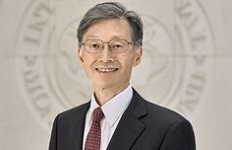The Deputy Managing Director of the International Monetary Fund (IMF), Mr. Kenji Okamura, on Friday issued a statement about the outcomes of his recent visit to Cameroon and discussions with the government offcials.
“We focused on two priorities: First, the need to promote inclusive and resilient growth through a diversified economy oriented towards non-oil exports. Growth needs to be inclusive to improve the well-being of all Cameroonian people. A diversified economy would help make long-term growth more resilient by protecting it against commodity shocks. Structural reforms, such as improving the business climate and strengthening financial inclusion, governance, and anti-corruption can unlock Cameroon’s growth potential, especially for the private sector to be its primary motor.”
“Second, we discussed three ways in which the government can create additional fiscal space to finance priority expenditures, such as infrastructure, health, and education, through the government budget: (i) implementing reforms to boost budget revenues and exports, such as broadening the tax base to the informal sector and improving the efficiency of public expenditure, (ii) focusing on productive expenditures, such as key infrastructure projects, and (iii) relying on longer-term and more concessional loans,” he stated in his statement.
“During my second day in Yaoundé, I had the pleasure of meeting with Mr. Abbas Mahamat Tolli, Governor of the Bank of Central African States (BEAC). I also participated in a panel discussion at the Regional Institute of Statistics and Applied Economics (ISSEA), chaired by Dr. Francial Libengue, Director General of the ISSEA, with interventions from Mr. Paul Tasong, Cameroon Deputy Minister of the Economy, Planning and Regional Development; Mr. Abbas Mahamat Tolli, Governor of the Bank of Central African States (BEAC), and Mr. Jean Claude Ngeumeni, Director of Multilateral Surveillance at the CEMAC Commission.”
“Discussions with the CEMAC authorities and during the panel were frank, constructive, and informative. They focused on the current global environment and policies that could help address key challenges the CEMAC region is facing,” he said.
“The current global environment is full of uncertainties for the CEMAC region. This region, heavily reliant on oil exports, has indeed benefitted from the surge in global oil prices but also faces a sharp increase in domestic inflation originating from external sources. The key challenge will be to keep inflation in check and preserve fiscal and external stability, without undercutting the nascent recovery. This requires a strategy to maintain macroeconomic stability, while protecting the most vulnerable and strengthening food security. Countries in the region need to take advantage of high oil prices to save part of the oil revenue windfall and build up foreign exchange reserves while monetary policy needs to act proactively to keep inflation in check.”
He also stated that “some key policy priorities to support more inclusive and diversified growth are already embedded in the CEMAC reform program.” The private sector should become the engine of growth, but governments have a key role to play by improving the business environment, undertaking structural reforms, and constructing key public infrastructure that would allow business to flourish, according to Mr. Kenji Okamura.
“Continuing to build human capital through education and meaningful employment is important to sustain a diversified economy. There is ample scope for expanding trade within the CEMAC region. To this end, barriers to trade need to be reduced. Accelerating inclusive financial sector development is another large opportunity to broaden financial intermediation and support business activity,” he said.

